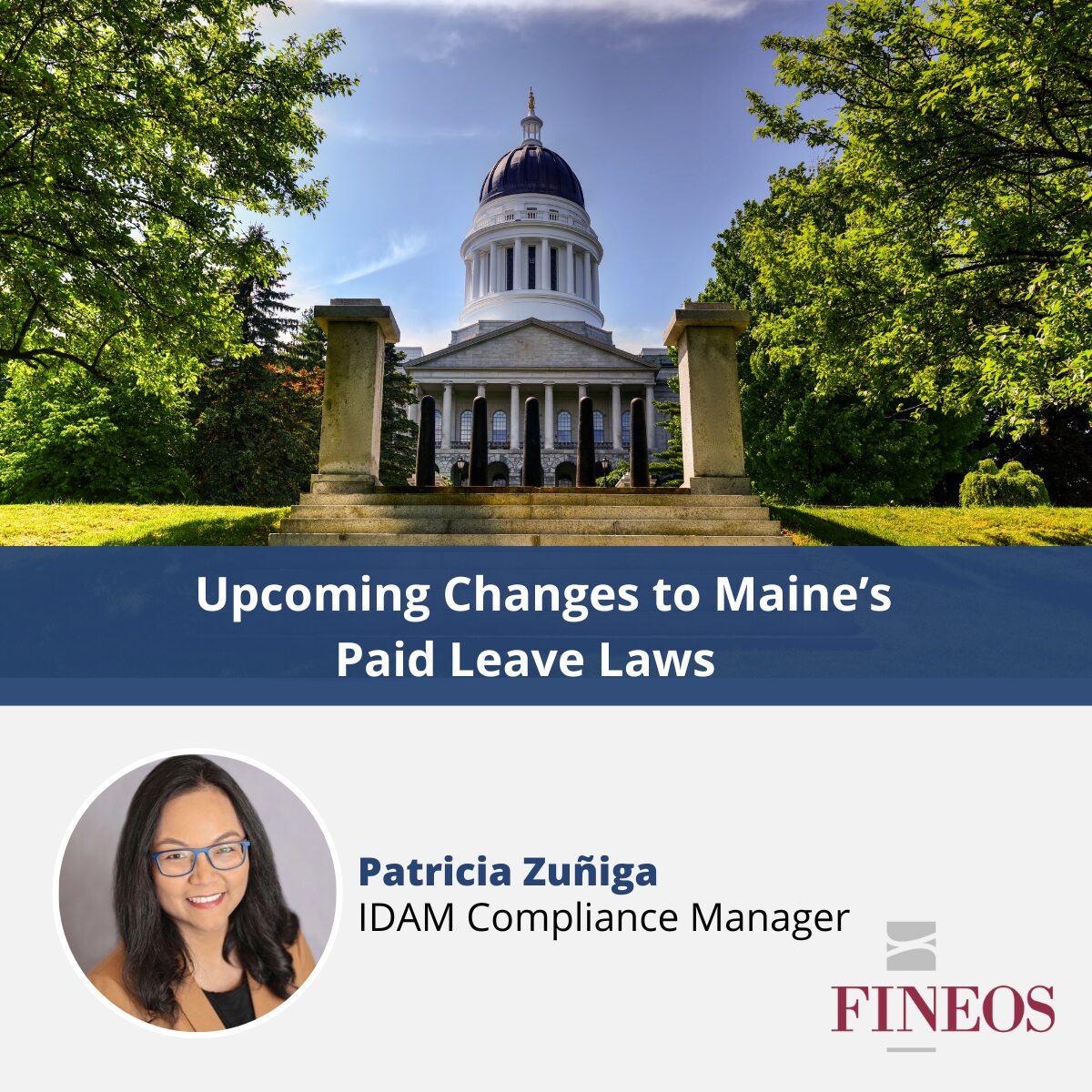“Wait… We Have to Provide Leave for What?!” 12 Obscure and Surprisingly Specific Leave Laws That Might Catch Employers Off Guard
Just when absence professionals think they’ve mastered the alphabet soup of FMLA, ADA, and PFML, along comes a curveball or two: time off for obscure leave reasons that might leave an observer to wonder exactly what combination of events led to the enactment of such a niche law. Across the United States, an assortment of states have passed leave laws for reasons that range from the heartfelt to the head-scratching. While these laws often spring from noble intentions, they can cause real compliance headaches – especially for multi-state employers trying to keep their policies up-to-date. Whether you’re an industry veteran or a compliance newcomer, buckle up for 12 of the most obscure and unusual leave laws you probably never saw coming (unless, perhaps, you’re moonlighting as a state legislator).
Note: This is intended as a quick survey of some of the more unusual and narrowly tailored leave laws across the U.S. It is not a comprehensive review of all applicable laws or the full details of those mentioned. These laws can include important definitions, conditions, and exceptions that are not covered here. Employers should consult the actual statutory language and legal guidance to ensure full compliance.
1–3. Educational Activities Leave
Most in the absence industry are familiar with laws that require time off for parents to attend school activities—but some states take this to hyper-specific levels.
- Indiana recently enacted a narrowly tailored law that lets employees take leave only for two types of school-related meetings:
- A conference about a child’s attendance, or
- A meeting related to the child’s Individualized Education Program (IEP) if the child has a disability.
Want to attend a regular parent-teacher conference in Indiana? That’s not covered—at least not yet.
- California, true to form, has its own set of unique provisions:
- Under California’s Leave for School Disciplinary Proceedings, parents can take leave if they’re required to attend a portion of a school day in the classroom of his or her child or ward because their child has been suspended for defiant, disruptive, obscene, or profane behavior. It’s not your typical parent-teacher conference—but if the school assigns you a seat in your child’s classroom, this law gives you a legal hall pass from work.
- Even more progressive, California’s School Activities Leave allows parents and grandparents to take time off for a wide range of school-related events. Covered reasons include enrollment, behavioral issues, natural disasters, or simply participating in school or daycare activities.
Takeaway: Employers, don’t assume school meetings are all treated the same—what’s protected in California might get a hard pass in Indiana, or many other states.
4–6. Crime Victim and Witness Leave
Now let’s take a turn toward the serious.
Many states allow crime victims to take time off to attend court proceedings or pursue actions to ensure their health and safety. But some go deeper.
- Connecticut’s Family Violence Leave Act allows employees to take leave for a variety of needs – medical, legal, and safety – but only if they are victims of family violence. A different Connecticut law permits employees to take leave to attend court proceedings in any criminal case if they or an immediate family member is a victim, but only if that family member is a minor, disabled, incompetent, or a homicide victim.
- Arizona’s Crime Victim Leave law similarly limits crime victim leave when an employee’s family member is a crime victim to situations where the family member has been killed or incapacitated.
- Arizona has a separate law which allows leave when an employee or their child is a victim to attend court proceedings, but only if the offense was committed by a juvenile.
Takeaway: These laws recognize the deep emotional and logistical challenges that follow a violent crime, offering crucial time for families to grieve, heal, and seek justice.
7 – 9. Bereavement Leave for Loss, Reproductive Grief, and Child Death
Illinois stands out with some of the most progressive bereavement laws in the country—honoring grief in many forms.
- In Illinois, the emotional toll on crime victims is acknowledged as employees are entitled to 2 weeks (10 workdays) of unpaid bereavement leave following a specified crime of violence (homicide, sex offenses, bodily harm, harassment and obscene communications, terrorism, and armed violence) committed against a family or household member. Notably, the leave must be taken within 60 days of receiving notice of the victim’s death (not 60 days from the death itself).
- Under the Family Bereavement Leave Act, in addition to bereavement leave for more traditional reasons, employees can also take up to 2 weeks off for the loss of reproductive hopes and plans. Covered reasons include:
- Stillbirth or miscarriage
- Unsuccessful reproductive procedures
- Failed adoption or surrogacy
- Negative diagnosis impacting fertility
- The Child Extended Bereavement Leave Act grants Illinois employees 6 or 12 weeks (depending on employer size) of unpaid leave for the loss of a child due to homicide or suicide. However, there are rules to avoid duplication; employees cannot use both the Family Bereavement Leave Act and the Child Extended Bereavement Leave Act for the same child’s death.
Bereavement leave is on the rise. Just focusing on a single state, Massachusetts has recently introduced over ten pieces of legislation to add leave rights for bereavement, including paid bereavement leave for the loss of a child, unpaid bereavement leave for extended family members, and adding bereavement rights to Massachusetts Paid Family Medical Leave law. None has yet been signed into law, but the abundance of proposals signals a shift in this area.
Takeaway: These laws recognize that not all grief looks the same. They carve out space for profound losses that often go unseen in traditional policy frameworks.
10. Preventive Health Care Leave
Preventive health care is usually wrapped into paid sick leave laws—but Louisiana took a unique step with its Genetic Testing and Cancer Screening Leave of Absence law.
This statute requires employers to provide one day of leave when an employee needs medically necessary genetic testing or cancer screening. It’s a small but powerful recognition of the role early detection plays in health outcomes – and the necessity of providing employees with the time needed to seek information.
Takeaway: Unlike many preventive leave policies buried inside broader sick leave laws, this one stands on its own, signaling its importance.
11. “Pawternity” Leave?
Emeryville, California adopted an ordinance that permits employees to take leave to care for an ill guide dog, signal dog, or service dog. Though not enacted, the New York City Council recently introduced a bill that would allow employees to take paid sick and safe leave to care for their pets.
Speaking of service dogs, though not a formal leave law, leave to train a service dog may be required under the Americans with Disabilities Act (ADA), if applicable. If an employee has a disability and the dog is being trained to assist with that disability, under certain circumstances time off may be considered a reasonable accommodation.
Takeaway: From accommodating service animals under disability laws to evaluating leave requests to care for a seriously ill dog, employers may have legal responsibilities they didn’t anticipate.
12. Ham Radio Leave (Yes, Really!)
We’re wrapping things up on a quirky note – and one that only applies to state employees: Texas grants up to 10 days of leave per year to employees who hold a valid FCC amateur radio license and are deployed to provide disaster relief.
To qualify, the employee must:
- Be on an official list coordinated by the Texas Division of Emergency Management,
- Have their leave approved by both their supervisor and the governor.
Takeaway: Ham radio might sound old-school, but it’s serious business in disaster relief—and Texas gives leave for it.
FMLA and ADA/PWFA Considerations
Before we close, a quick note on the big federal players:
- Family and Medical Leave Act (FMLA): Many of the state laws above cover topics outside the FMLA and its state counterpart’s scope, but keep in mind that these laws could run concurrently if the event involves a serious health condition (e.g., trauma from a crime, medical impact of miscarriage, etc.).
- ADA/PWFA: The ADA and the Pregnant Workers Fairness Act (PWFA) may come into play when an employee needs time off due to a disability or pregnancy-related limitation. Some of the circumstances discussed above could implicate conditions covered by either the ADA or PWFA; employers should always assess whether a reasonable accommodation, including leave, is required.
Bottom Line for Employers
Even the most obscure laws can carry big compliance consequences. Whether it’s grief from a failed adoption or time off to attend a school suspension meeting, employers must stay nimble—and human-centered. In the end, these unusual laws remind us that behind every leave request is a person, a story, and sometimes, a ham radio.
FINEOS can help with your leave programs
Using modern insurance technology solutions like the FINEOS Platform can help insurance carriers and employers remain compliant when leave legislation is revised and new leave programs are enacted by governing jurisdictions. Learn more about how a modern, integrated disability and absence management (IDAM) solution can help your organization adapt to this rapidly evolving market and remain in compliance.


